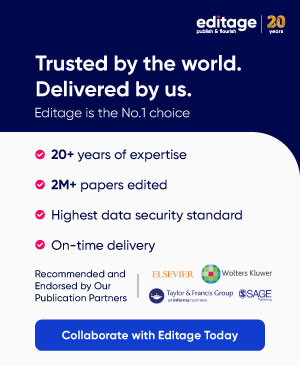|
Getting your Trinity Audio player ready...
|
As a non-native English academic researcher in STM, it can be challenging to write and publish academic papers. You may feel that your writing lacks clarity and coherence, or that you are struggling to convey your ideas effectively in English. In such cases, you may be tempted to use tools like ChatGPT to edit your academic paper. However, there are several reasons why ChatGPT is not a good tool for academic editing.
Firstly, ChatGPT lacks the ability to understand the nuances of academic writing. Academic writing in STM research requires a deep understanding of the subject matter, technical terms, and the ability to engage in critical thinking. While ChatGPT can generate text that appears to be informative and logical, it lacks the ability to comprehend the nuances and complexities of academic content. Therefore, it may produce content that is inaccurate, incomplete, or irrelevant to the topic being discussed.
Secondly, ChatGPT is limited by the information and data it has been trained on. As a non-native English academic researcher in STM, you may have unique insights and perspectives on the subject matter that ChatGPT cannot replicate. This means that the content it produces may lack the depth and breadth of original thought required in academic writing.
Thirdly, ChatGPT may not be able to maintain coherence throughout the entire piece. Academic writing in STM research requires a consistent and coherent structure that follows the conventions of the discipline. While ChatGPT can generate text that appears to follow a logical structure, it may not be able to maintain coherence throughout the entire piece. This is because ChatGPT generates text based on statistical patterns and probabilities, rather than a deep understanding of the content and structure of academic writing.
Fourthly, ChatGPT may not be able to catch errors in logic, syntax, or argumentation. Academic writing in STM research requires a high level of accuracy and attention to detail. While ChatGPT can generate text that appears to be grammatically correct and free from spelling errors, it may not be able to catch errors in logic, syntax, or argumentation. This means that the content it produces may be misleading or confusing to readers, potentially leading to a lack of credibility or trust in the research.
Finally, ChatGPT lacks the human touch that is essential for effective academic editing. As a non-native English academic researcher in STM, you may have unique ideas and perspectives that you want to convey in your academic paper. ChatGPT cannot replicate your voice, tone, or style, which are essential for effective communication in academic writing. Additionally, ChatGPT cannot provide the feedback, guidance, and support that a human editor can provide.
In conclusion, while ChatGPT may seem like a tempting tool for academic editing, it is not a good choice for non-native English academic researchers in STM. Academic writing in STM research requires a deep understanding of the subject matter, technical terms, and the ability to engage in critical thinking. It also requires a high level of accuracy and attention to detail, a consistent and coherent structure, and a human touch that cannot be replicated by AI language models. Therefore, it is important to rely on human editors who can provide the feedback, guidance, and support you need to convey your ideas effectively in English and publish high-quality academic papers.


Comment